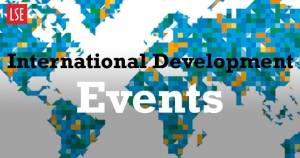Macroeconomists working on Africa have got their analysis very wrong, argues Morten Jerven. In his new book, Africa: Why Economists get it wrong, Jerven argues that the study of Africa relies on flawed narratives and data. He questions many of the presuppositions made by popular economists to provide a revisionist account of African economic history.

By Kris Gulati
“Why has economic growth failed in Africa?” is the question that many economists ask themselves. To Jerven, this is the wrong question to ask, and ultimately results in misguided answers. This question is asked because of the poor (or negative) levels of economic growth in Africa during the 1980s and 1990s. However, this data is too narrow and overshadows the true picture. Jerven points to good levels of growth in the 1960s and 1970s, and also more recent levels of economic growth since 2000, which are more positive.
As such, studies such as Collier’s bottom billion and Easterly’s The Elusive Quest for Growth make erroneous assumptions because they focus on a small sample of data, which then skews their analyses and proposals. To highlight this, Jervis shows how the opinion of popular serial the Economist has changed over 10 years.
In 2000, the Economist described the African continent as “hopeless” and asked the question, “Does Africa have some inherent character flaw that keeps it backward and incapable of development?”
Fast forward ten years and the African continent is now “rising”.

Over a decade, how could the belief system of the Economist (and economists) change so dramatically?
Jerven believes that part of the reason for sustained cognitive dissonance and the dogged pursuit of African exceptionalism is because supposedly ‘good’ economic policies (the structural adjustment policies of the 80s and 90s) did not translate into economic growth, whereas ‘bad’ policies characterise the decades when Africa did experience growth.
How was this growth missed? Economists have been preoccupied with the lack of growth, trying to find flaws with Africa, rather than questioning findings that were based on flawed models and evidence. Economist have found themselves distracted from the real issues at hand.
Jerven argues that economists should re-focus their efforts to explain growth differences between African countries and fluctuations within them. This is because the data normally used, when applied to large studies, provides conclusions which are often questionable. This research – “Wikipedia with Regressions” as Jerven terms it – should be replaced by studies that are grounded in proper social science research methods and should help to provide information which is of more use to African countries, such as how to increase growth in Tanzania from $,1000 to $3,000.
For more on this fascinating area of discussion, you can listen to the following podcast with Owen Barder and Morten Jerven. (Transcript available here.)
Currently an Associate Professor at Simon Fraser University, Morten Jerven is an economic historian with a PhD from the London School of Economics.
About the Department’s MSc in African Development: Prof. Catherine Boone
Related Posts
   |





